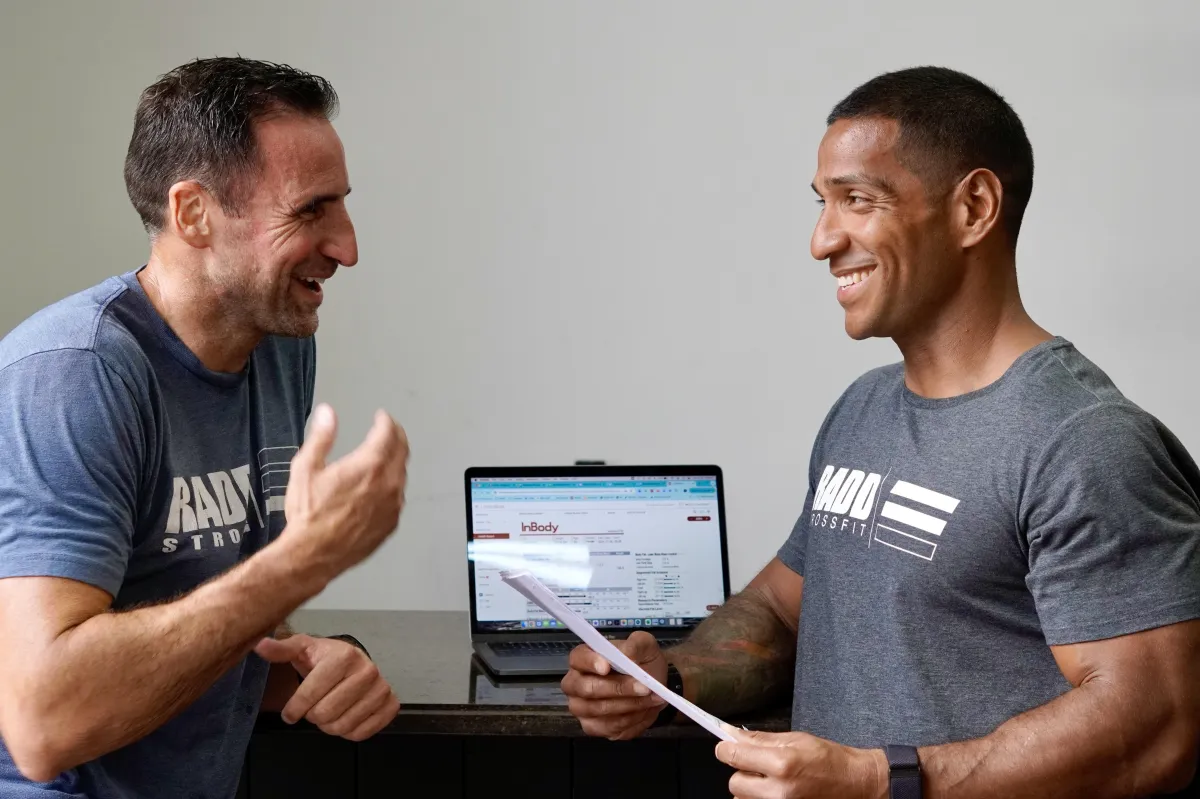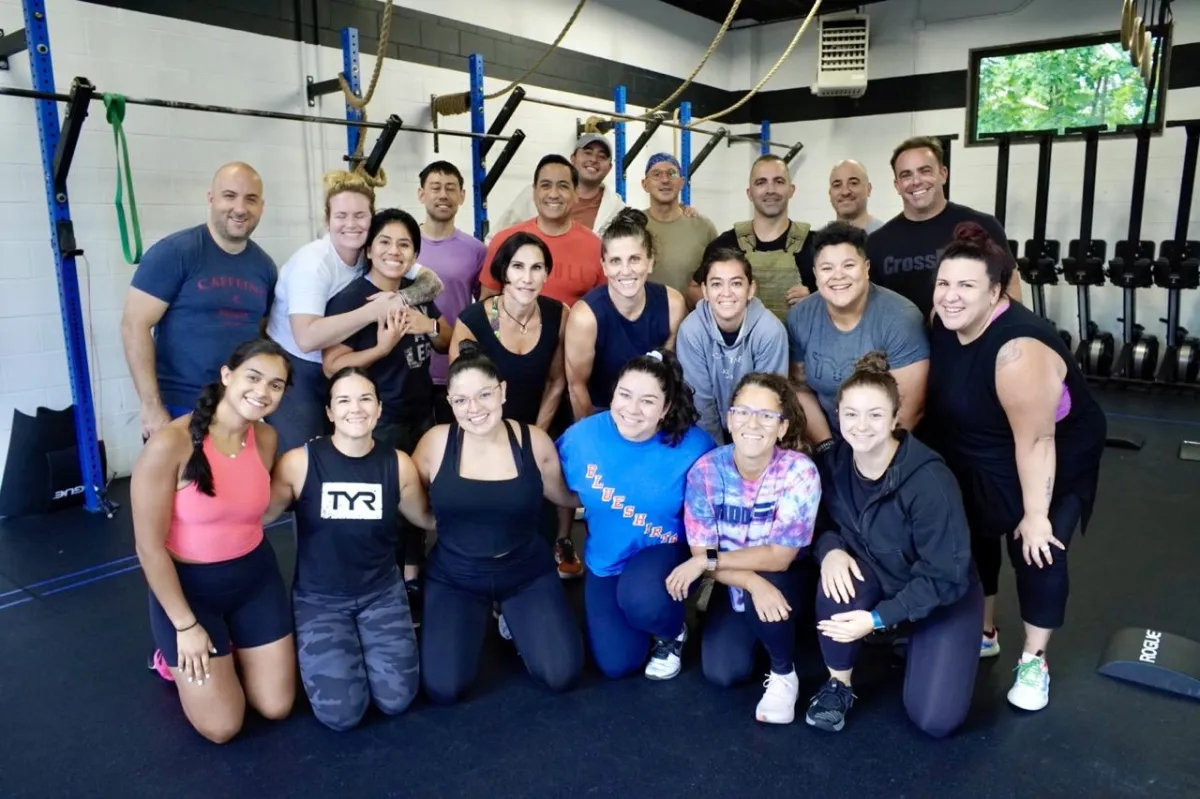Personal Training, CrossFit, & Nutrition
Stronger together at RADD

WELCOME
Welcome to
RADD CrossFit
RADD CrossFit is your ultimate fitness solution. Experience top-notch member engagement, personal training, and a CrossFit community of like-minded, positive people all in one place. Our tailored programs and cutting-edge facility empowers you to achieve your fitness goals and fuel your growth. RADD CrossFit isn't just a gym — it's a game-changer for your health and fitness journey.
WE'RE HERE TO HELP
TRANSFORM YOUR HEALTH

Quick and Effective Workouts
45-minute Personal Training or CrossFit Training that fit into your busy schedule, allowing you to get back to your day feeling accomplished and energized.

Track Your Progress
Monitor your fitness journey with our InBody scan. Track body composition, muscle mass, body fat, and more to see real results and stay motivated.

Improve Your Health
Boost your overall well-being by improving key health markers like blood pressure, heart rate, body fat, bone density, muscle mass, and more with our tailored fitness programs.

Nutrition Coaching
Enhance your fitness journey with personalized nutrition coaching. Our experts will guide you to make healthier food choices and achieve your goals faster.
SERVICES
PERSONALIZED
MEMBERSHIP
Unlock your full potential with a RADD CrossFit membership, where expert coaching, a supportive community, and individualized programs drive lasting results.

1:1 Training

CrossFit

Nutrition

Community
SUCCESS STORIES
REAL RESULTS, REAL VOICES
I have been a member at RADD for 3 years and I have nothing but praise. The staff: Each coach has their strengths and I really liked Tommy, Dan and Diana’s classes. Dan is very attentive to my concerns. He gave me a lifting routine to fit my personal needs and body composition. Diana is very bubbly and relates well with the members. The atmosphere: Dan and Diana have done an outstanding job of creating an atmosphere of non judgement, welcoming to the new comer and positive feedback to all. When I started at the gym, my first class was so welcoming. All the members came up to me at the end of class and gave a fist bump and welcomed me. I would recommend this gym if you are looking for a new lifestyle including a healthy community -mentally and physically, great members and encouraging staff that lives to serve and see progress.
Blase Whitting
Member
I've been going to RADD for roughly 10 years now with my husband. During this time, I've met some incredible people with whom I now call family. Throughout my life, I've tried many different gyms like Orange Theory, F45, Planet Fitness, and more but none of them offered the guidance and community that RADD offers. I had to have back surgery (not related to working out) and when I got the go ahead to workout again, the coaches at RADD were there to help me get back on track with modified programming for strength and conditioning. I'm happy to say that I've been pain free for years now. If you want a great gym to be a part of, look no further. You found it.
Madelin Fradelakis
Member
Extremely welcoming CrossFit gym! I dropped in from out of town and all of the owners who were there greeted me and welcomed me into the space - even though I was wearing a Red Sox shirt! The work out was great, good parking and the facilities were super clean - I will definitely come back next time I am around!
Zack Ahrens
Drop-in member
ABOUT US
RADD CrossFit was founded by Rob, Dan, and Diana, who began training clients in their parents' backyard. Their passion turned this humble start into a thriving fitness community in Glen Cove, NY. RADD CrossFit is dedicated to helping members reach their health and fitness goals with personalized training and innovative programs.
HOURS OF OPERATION
Personal Training, Nutrition Consultation & Massage Therapy by appointment only.
CrossFit Group Class Schedule:
6:00 am Monday-Friday
7:15 am Monday-Saturday
8:30 am Monday-Sunday
5:30 pm Monday-Friday
7:00 pm Monday-Thursday
QUESTIONS?
RADD CrossFit
74 Cedar Swamp Road,
Glen Cove, NY 11542
516-855-7348
Follow us on Instagram and Facebook
Copyright ©2023 All rights reserved
Powered by Zen Planner


